How Agroforestry Helps Farmers and Mitigates Climate Change
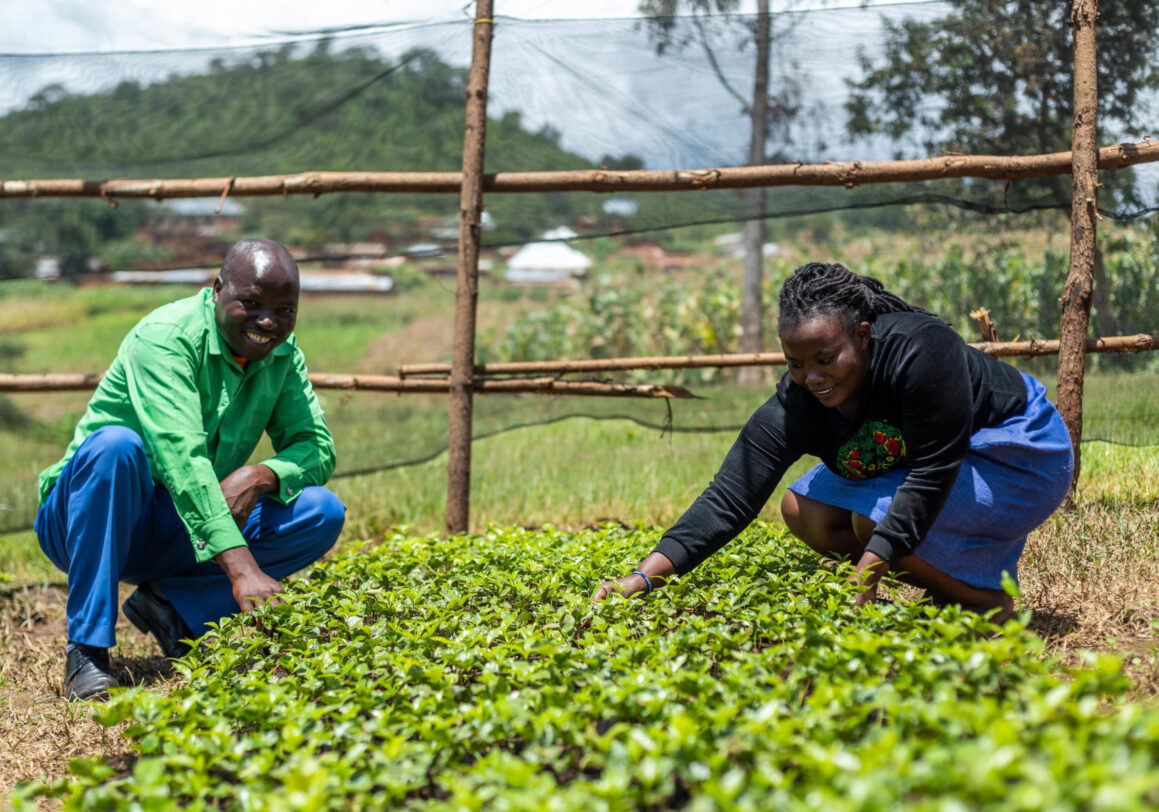
The effects of climate change on agricultural crops negatively affect millions of smallholder farmers. Extreme temperatures cause increased incidents of pests and wilting which result in the loss of yields for both food and cash crops. The worst consequences for farmers are the reduced production of cash crops such as coffee. However, the initiative for coffee&climate (c&c) is changing this story and working with smallholder families, youths and women in the highlands of Southern Tanzania to find solutions. In Iyula village within Mbozi District, one Agricultural Marketing Cooperative Society (AMCOS) is tackling the problem of climate change through protecting natural resources and agroforestry. This includes planting shade trees within existing plantations and cultivating disease-resistant coffee varieties.
Planting shade trees
Agroforestry is a farm management system in which trees are grown among different crops such as coffee. Under the canopy of shade trees, coffee is protected from extreme heat during the dry season. Additionally, during the rainy season, shade trees protect the bare ground from soil erosion. Through the c&c project’s interventions of which Hanns R. Neumann Stiftung (HRNS) is a key implementer, farmers in Iyula village have been equipped with knowledge on the best types of shade trees to be integrated within their coffee plantations. This is important for two reasons: to ensure high shade levels and to minimize competition with coffee for nutrients in the soil.
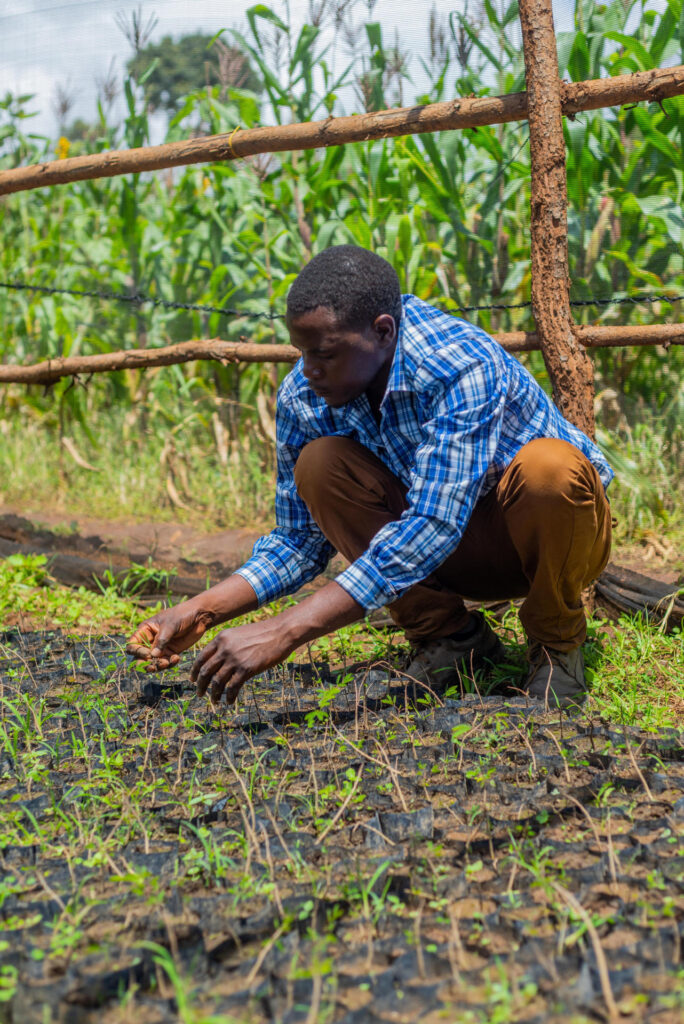

CULTIVATING DISEASE-RESISTANT COFFEE VARIETIES
Although shade management is a good way to protect coffee trees from the sun, it is not sufficient if implemented alone. In addition to information and training on other climate-smart practices, c&c supported Iyula AMCOS to establish a coffee nursery in 2021. Every season, the nursery has the capacity to produce 10,000 shade tree seedlings and 25,000 high-yielding coffee variety seedlings that are resistant to Coffee Wilt Disease (CWD), and Coffee Berry Disease (CBD)
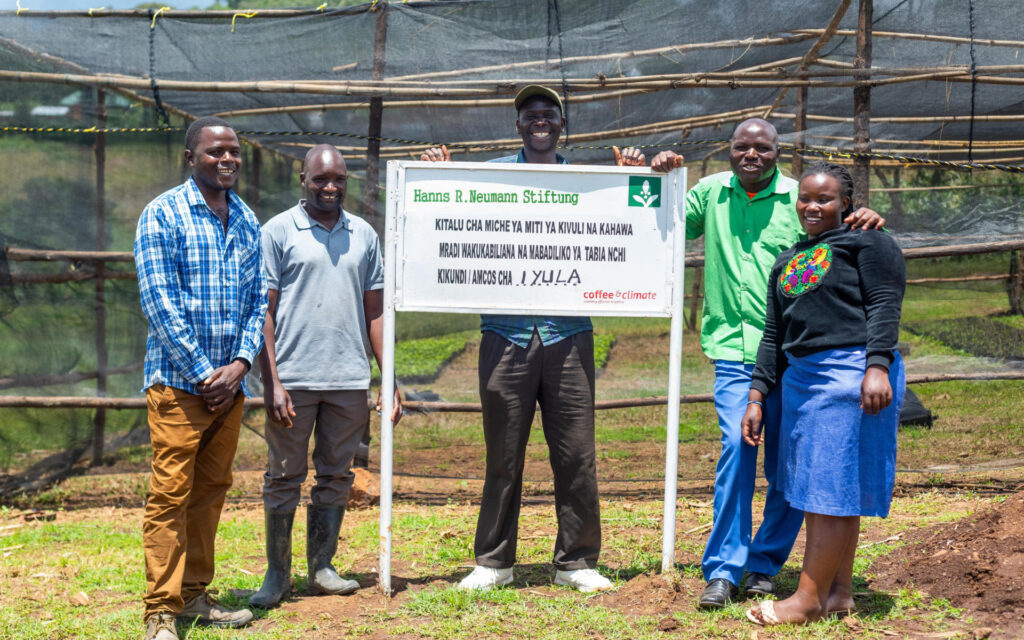
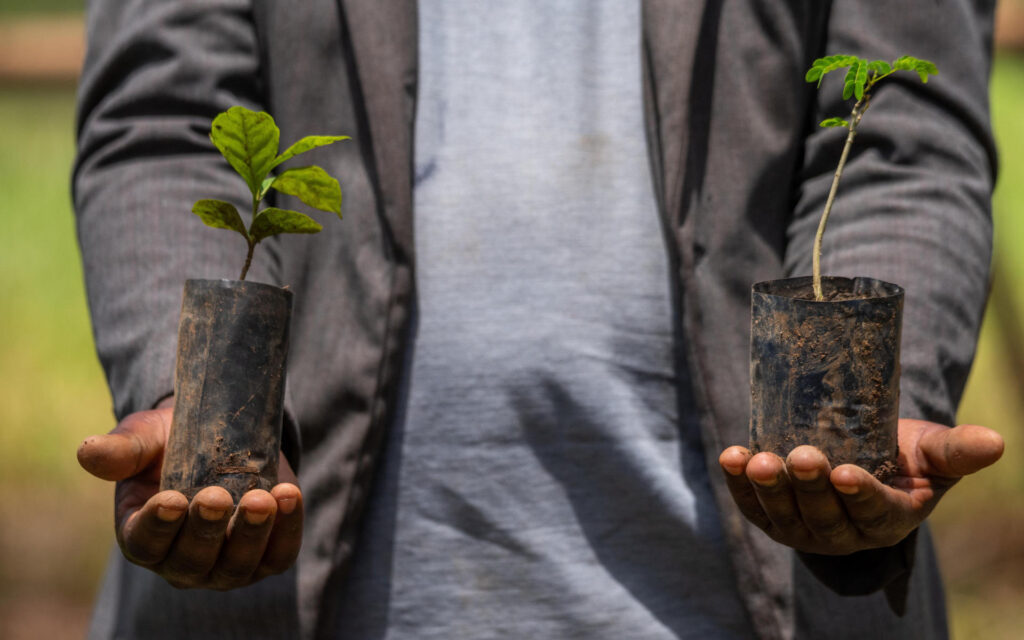
About a thousand smallholder families in Iyula village have access to Iyula AMCOS’ seedlings at a cost of TSH 500 per seedling (0.20 Euro). As a result, smallholders are growing improved, climate-resistant varieties of coffee, increasing their yields and increasing their incomes. Leah Mlawa, the Iyula AMCOS Administrator speaks to the benefits the nursery has on the community.
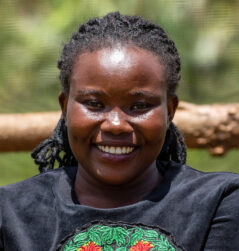
We have a high demand for improved coffee varieties and shade trees in the community which is generating income for the AMCOS while giving back to the community. I have seen farmers who used to produce about 2000 kg of coffee from 1 acre with old coffee varieties now produce up to 4000 kg of coffee on 1 acre with the improved coffee varieties.” – Leah Mlawa, Iyula AMCOS Administrator.
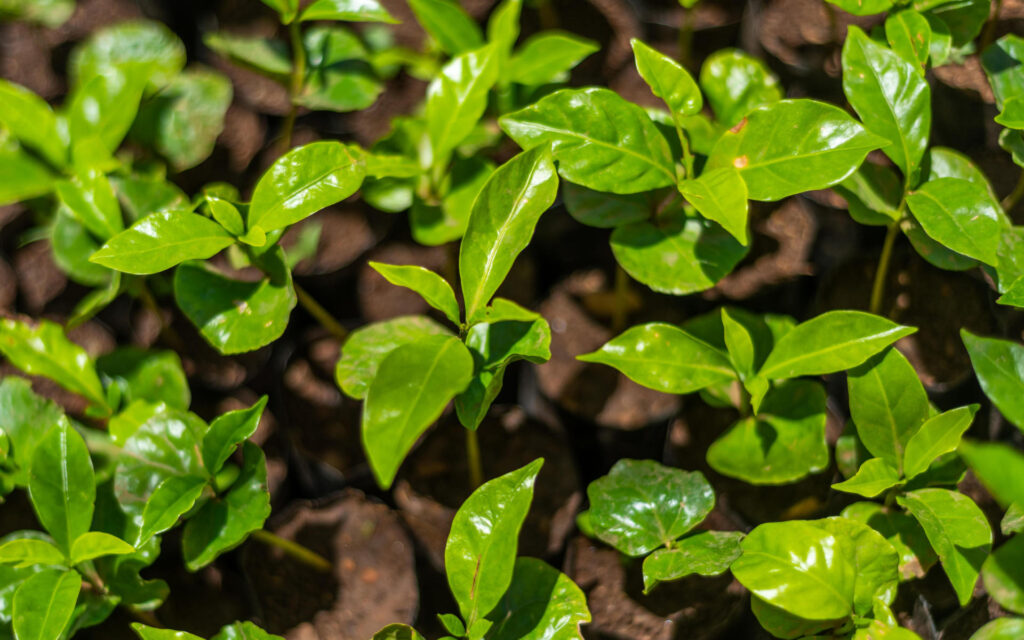
The protection of natural resources
The increased demand for shade trees and improved coffee varieties in Iyula village bears the risk of increasing deforestation. As parts of Iyula village are covered with natural forests, farmers may be tempted to expand their plantations into originally forested areas. Therefore, the c&c project’s interventions strongly encourage expansion in already occupied farm areas. Farmers are also educated on the positive impacts that forests, planting shade trees and diseases-resistant coffee varieties have on the environment. Trees absorb carbon dioxide (CO2) in the atmosphere through photosynthesis and therefore contribute as a solution to the climate crisis. Additionally, disease-resistant coffee varieties reduce the requirement for pesticides. This too has a positive effect on the environment while also cutting production costs for farmers.
The farming community in Iyula are equipped and dedicated to agroforestry. It is helping to protect them against rises in temperature which are predicted to continue to put a strain on coffee production in the future. At the same time, it contributes to reducing carbon dioxide in the air and as a result, mitigates climate change. Nevertheless, c&c’s activities in Tanzania go beyond agroforestry, climate adaptivity and mitigation. Our broad and holistic approach aims to support farmers to improve their overall livelihood situation.